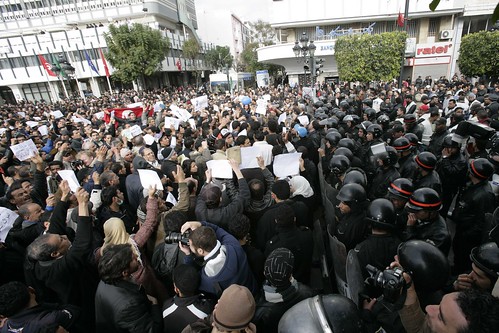 Over at the University of Notre Dame’s Contending Modernities blog, Michael Driessen takes lessons from the secular-Islamist negotiation happening in Tunisia:
Over at the University of Notre Dame’s Contending Modernities blog, Michael Driessen takes lessons from the secular-Islamist negotiation happening in Tunisia:
What will be important for the relevance of Tunisia as a model of religiously friendly democratization, therefore, is how Ennahda frames and responds to the tensions and challenges that will arise from its “Persepolis moments.” In other words, what does Ennahda decide to do with its religious tenor and orientation when it does not have to compromise on its religious goals?
If Ennahda and the AKP can develop an authentic brand of religious politics that keeps them and everyone else in the democratic game, they could represent a worthwhile model for the many other Muslim-oriented parties in the region. And in the process they might create a new model of Muslim democracy that does not involve the surrender of their religious identity, but keeps it integrally tied to a firm respect for constitutional norms, liberties, and rights.
Read more here.












